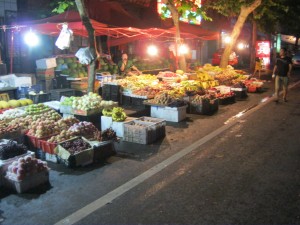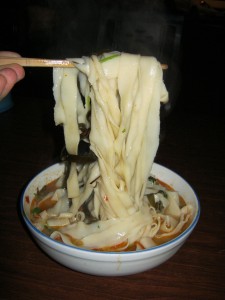As I have continued with my give freely receive freely experiment, I have of course continued to have conversations with people about what I am doing and why I am doing it. For the most part these conversations have been really positive, often with people expressing what a great idea it is and that they hope I have lots of success etc etc. But then some of the conversations have just been awkward…
Part of this is probably due to me not being all that great at expressing my ideas about GFRF yet, and then part of it is probably that the idea is so different from what people are used to and have experienced for their entire lives that they really struggle to understand what its about. Some of our ideas about exchange are so deeply embedded that they become invisible to us, they become fundamental assumptions that we do not question or even necessarily realize exist. So when a new idea is presented to us that operates outside those sets of assumptions we still try to interpret them in the context of our underlying assumptions even though they don’t apply, and this can lead to confusion and misunderstanding.
In a way its a bit like trying to tell someone that ‘there is no spoon’, those who’s minds are ready embrace the idea readily, while others just think you’re weird. I guess what I need to do is demonstrate that there is no spoon to help them to understand. I’m working on it but I think it’ll take some time. (If you don’t get the reference, watch the video clip below, and if you do get the reference still watch the video – its a great scene).
So in this post I thought I’d mention some of the comments or misunderstandings I’ve encountered in my awkward conversations.
One of the biggest misconceptions I have encountered has been that by using ‘Give Freely Receive Freely’ I am not valuing what I do. One quote “Yeah I get what you’re doing, but I don’t think I could do that myself because I value my time too much”. Honestly this couldn’t be further from the truth. The way I see it is that I value my time so highly that I don’t want to put a price on it. The moment I put a price on my time, even a very high price, it becomes a commodity to be bought and sold. My life, and my time is more valuable to me than that, I will however give it freely at my own discretion.
Another misconception related to this when I mention this system of exchange is that I am expecting people to pay less because of this. Again not true. Essentially I expect people give to me freely in return because they want to support what I am doing. This is not tied to any particular price level. People will give according to their means and the value they find in what I provide. I want people to find and evaluate that value for themselves though. Too often our ideas about value are determined by marketing efforts or by power relationships (monopolies, cartels, vulnerability of one of the parties to the exchange) rather than by the actual value of what is provided. This leads to distortions in our economy and society and causes resources to be directed to things that aren’t actually useful to us and to be diverted from things that are. If each of us is able to determine value for ourselves then our individual and collective resources would go to the things that are truly worthwhile and make us happy, rather than being wasted on things that actually contribute no value to our lives. (Many of the things our money and therefore resources go to under our current way of operating, far from adding value to our lives actually take it away – more on this in another post).
(A classic example of price being determined by marketing rather than true value in this article. A $3000 vacuum cleaner that doesn’t perform as well as a $100 one: http://www.nzherald.co.nz/business/news/article.cfm?c_id=3&objectid=10829343 ).
I believe there is great value in what I do, that it really helps people in their lives, and that left to find the value themselves they will value this appropriately. Of course there is the challenge of helping people see past the common externally imposed marketing and power relationship driven value system, but you’ve got to start somewhere and I believe that exchanging in this way may actually cause people to value what I do more highly than if I put a set price on it. Most people are actually quite intelligent if you give them a chance to be.
A third misconception again related to the other two, is that somehow by doing this I have given up on having all the things our material society values. Basic things like owning my own house, take holidays and so on. Again not true at all, I still want those things and think I have a good, maybe even better chance of receiving them by giving freely and receiving freely than by charging set prices.
What I have given up on is the idea of struggling and competing against others in my society. I guess you could say I have given up on the rat race, but I don’t think that the rat race is the only way to achieve those material aims. I think there is a better way, and that is what I am pursuing. This way involves more trust and more co-operation with others in our society. It will bring out the best in me so that I end up contributing more that is of true value to individuals and society without wasting as much energy on the things that are not of value; and if it works properly I will receive more in return for the true value I create.
This way is the Give Freely Receive Freely way. I hope you’ll continue to follow my journey as I explore these ideas and learn how to make this work in practice.





